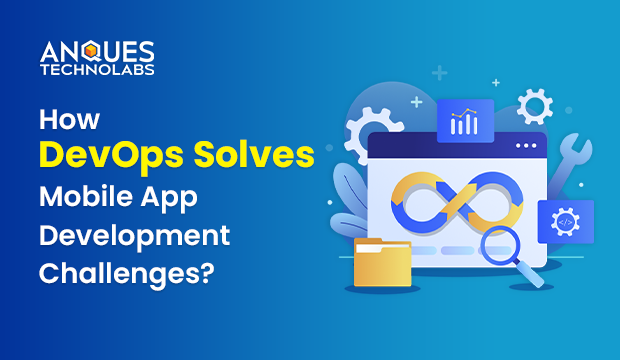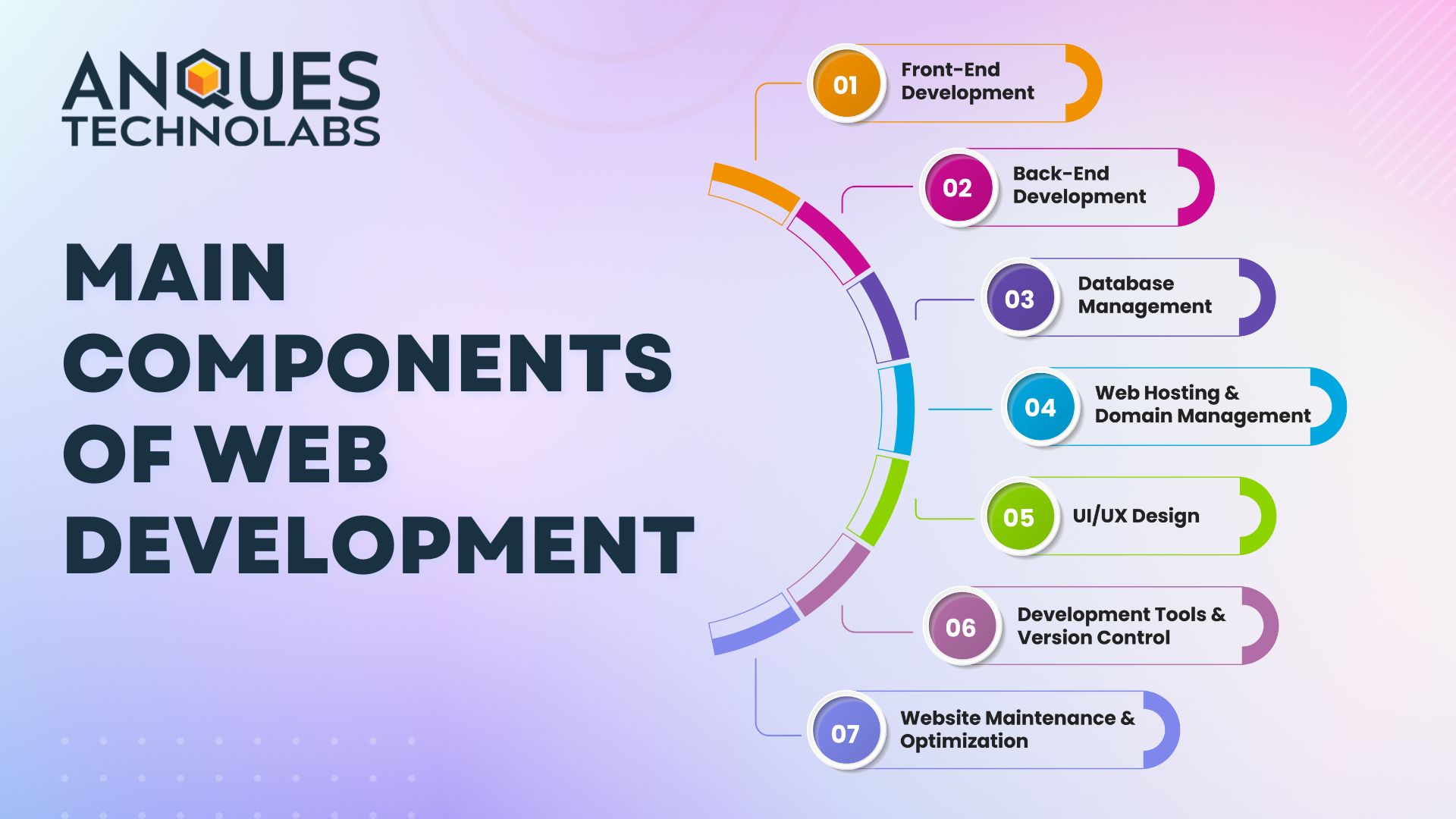Introduction
DevOps solves mobile app development, creating high-quality apps quickly can be challenging. Developers often face issues like long development times, frequent bugs, and difficulties in managing updates. DevOps offers a solution to these challenges by blending development and operations into a smooth, efficient process.
Through DevOps solves mobile app development, teams work together more easily, speed up app releases, and deliver apps that better meet user needs. In this blog, we’ll explore how DevOps helps overcome common mobile app development issues, making the journey from idea to app much simpler and more effective.
Understanding DevOps in Mobile App Development
DevOps, short for Development and Operations, is a methodology that promotes collaboration between developers and IT operations. It’s driven by principles like automation, CI/CD services, and feedback loops to create a seamless development pipeline. The DevOps approach focuses on bringing development and operations together to speed up the development process, reduce errors, and improve the overall quality of apps.
Challenges in Mobile App Development
Before DevOps, mobile development faced several hurdles:
- Slow release cycles often led to outdated features and security vulnerabilities.
- Limited collaboration between development and operations caused communication gaps, leading to delayed deployments and issues in app stability.
- Difficulty in collecting and acting on feedback from users made it hard to improve apps quickly.
- Security concerns due to slow patching of vulnerabilities and complex testing environments.
These challenges often resulted in lengthy development cycles, bugs, and unsatisfactory user experiences.
How DevOps Revolutionize Mobile App Development?
DevOps directly addresses these challenges through faster, more efficient processes:
- Accelerated release cycles allow new features and updates to be rolled out regularly.
- Improved communication and real-time collaboration result in better alignment between teams, creating a more cohesive development environment.
- Automation of testing and deployment reduces human error and speeds up processes.
- Increased scalability and security allow for more robust, resilient mobile applications.
Key Components of DevOps in Mobile Development
The success of DevOps in mobile hinges on core elements that enable continuous improvement and adaptation.
Continuous Integration (CI)
CI merges code changes frequently, helping developers spot errors early. This process speeds up testing and reduces bugs, allowing for smoother app development.
Continuous Delivery (CD)
CD automates the release process, enabling frequent, stable updates. This means new features or fixes can quickly reach users without long delays.
Automated Testing
Automated testing tools run tests on code changes, catching issues before they reach users. This makes sure app quality and minimizes the chance of errors.
Monitoring and Feedback Loops
Real-time monitoring provides insights into app performance. With fast feedback, teams can resolve issues quickly, improving the user experience.
The Role of Cloud in DevOps for Mobile Apps
The cloud is essential for DevOps, offering scalable resources and environments for testing, deployment, and monitoring. Cloud-based CI/CD services, combined with tools like AWS, Azure, and Google Cloud Platform, provide a flexible infrastructure that supports rapid scaling, making DevOps implementation in mobile development more feasible and cost-effective.
How DevOps Boost Mobile App Security?
Security is a growing concern in mobile apps, where vulnerabilities can lead to serious data breaches. DevOps incorporates security practices directly into the development cycle, known as DevSecOps, making sure that security is baked into the code from the start. Automated vulnerability assessments, regular patching, and monitoring all contribute to maintaining a secure app environment, reducing risks as soon as they’re detected.
Tools and Technologies in Mobile DevOps
Successful mobile DevOps relies on a robust toolchain for automation, testing, and monitoring. Popular tools include:
- CI/CD Tools: Jenkins, Bitrise, CircleCI.
- Testing Tools: Appium (cross-platform), XCTest (iOS), and Espresso (Android).
- Monitoring Tools: Firebase, Crashlytics, New Relic for real-time performance and error tracking.
Benefits of DevOps for Mobile App Development
- Faster Time to Market: Frequent releases and quick bug fixes makes sure that the app remains relevant and competitive.
- Improved Stability and Performance: Continuous testing and monitoring improve app quality, reducing crashes and improving user satisfaction.
- Cost-Effectiveness: By reducing development cycles and automating processes, DevOps lowers the overall development cost.
Common Challenges in Implementing DevOps for Mobile Apps
Although DevOps is transformative, it does come with challenges:
- Platform Diversity: Supporting iOS and Android can complicate testing and deployment.
- Device Fragmentation: Mobile apps must work on many device models, screen sizes, and OS versions.
- Frequent Updates: Rapid updates can risk disrupting the user experience if not managed well.
Examples of Mobile DevOps Success
Several companies have successfully leveraged DevOps in mobile development:
- Uber: Frequent updates enable quick bug fixes and new features, keeping the app reliable.
- Netflix: Automated testing for smooth streaming and quick issue resolution.
- Airbnb: Fast code integration ensures efficient feature delivery and a user-friendly experience.
- Spotify: Frequent updates allow for rapid feature testing and user feedback incorporation.
- Instagram: Handles high traffic with stability and scalability for millions of users.
Future of DevOps in Mobile App Development
The future of mobile DevOps looks promising, with trends like AI-driven DevOps (AIOps) to predict and mitigate issues, DevSecOps becoming standard, and serverless architectures for even faster deployments. These trends will make mobile development faster, more secure, and more adaptable to user needs.
Conclusion
DevOps solves mobile app development by making it more efficient, scalable, and user-focused. With faster updates, improved security, and seamless integration, DevOps makes sure that apps not only keep up with user expectations but set new standards in mobile technology. Anques Technolabs provides DevOps services, enabling developers to build and maintain mobile apps that stand the test of time and user demand.
FAQs
What’s the difference between DevOps for mobile and web development?
DevOps for mobile centers on apps for smartphones and tablets, requiring testing on multiple devices and operating systems. Web DevOps focuses on websites, primarily tested across different browsers. Mobile updates usually need app store approval, while web updates are immediate. Both approaches aim to improve speed and quality but cater to different platforms and user interactions.
Why is DevOps important in modern software development?
DevOps is crucial because it combines development and operations to improve collaboration, speed, and quality. With AWS DevOps, it allows for faster updates, better software reliability, and quicker response to user feedback. This helps teams deliver high-quality software that meets user needs more efficiently.
What role does automation play in mobile DevOps?
Automation in mobile DevOps speeds up testing and deployment tasks. It helps teams quickly run tests, catch bugs, and release updates without manual effort. This boosts app quality and enables developers to concentrate on building new features and improving user experiences.
What are the five pillars of DevOps?
The five pillars of DevOps are:
- Culture: Encouraging teamwork and collaboration.
- Automation: Streamlining processes to save time.
- Measurement: Tracking performance and outcomes.
- Sharing: Communicating openly about successes and challenges.
- Continuous Improvement: Regularly looking for ways to improve processes and products.
Why choose Anques Technolabs to use DevOps?
Anques Technolabs provides expert DevOps services to improve your development process. We deliver custom solutions for fast updates and high-quality software. Our skilled team emphasizes teamwork, automation, and ongoing improvement, helping your business become more efficient and responsive to user needs and market changes.















